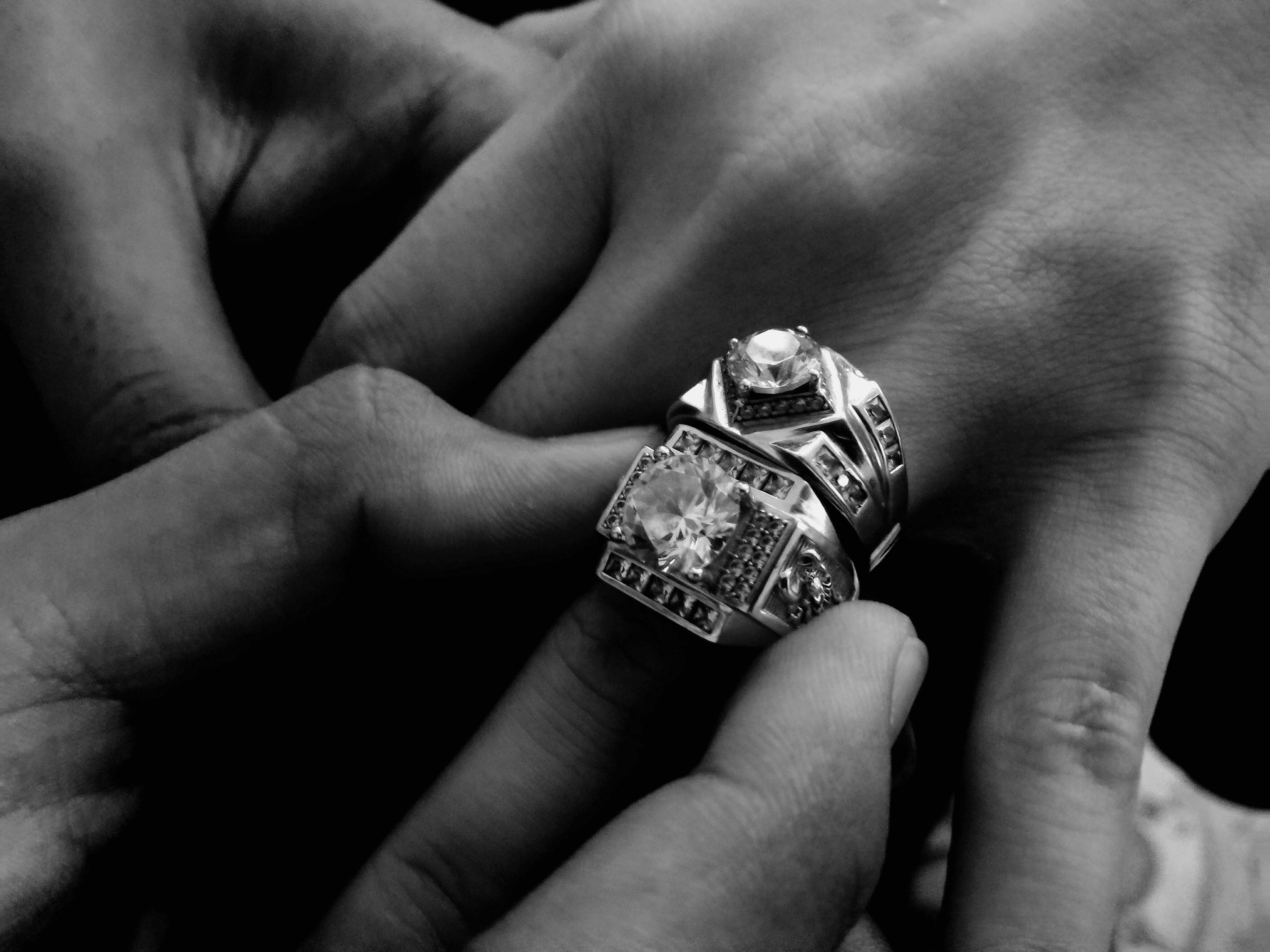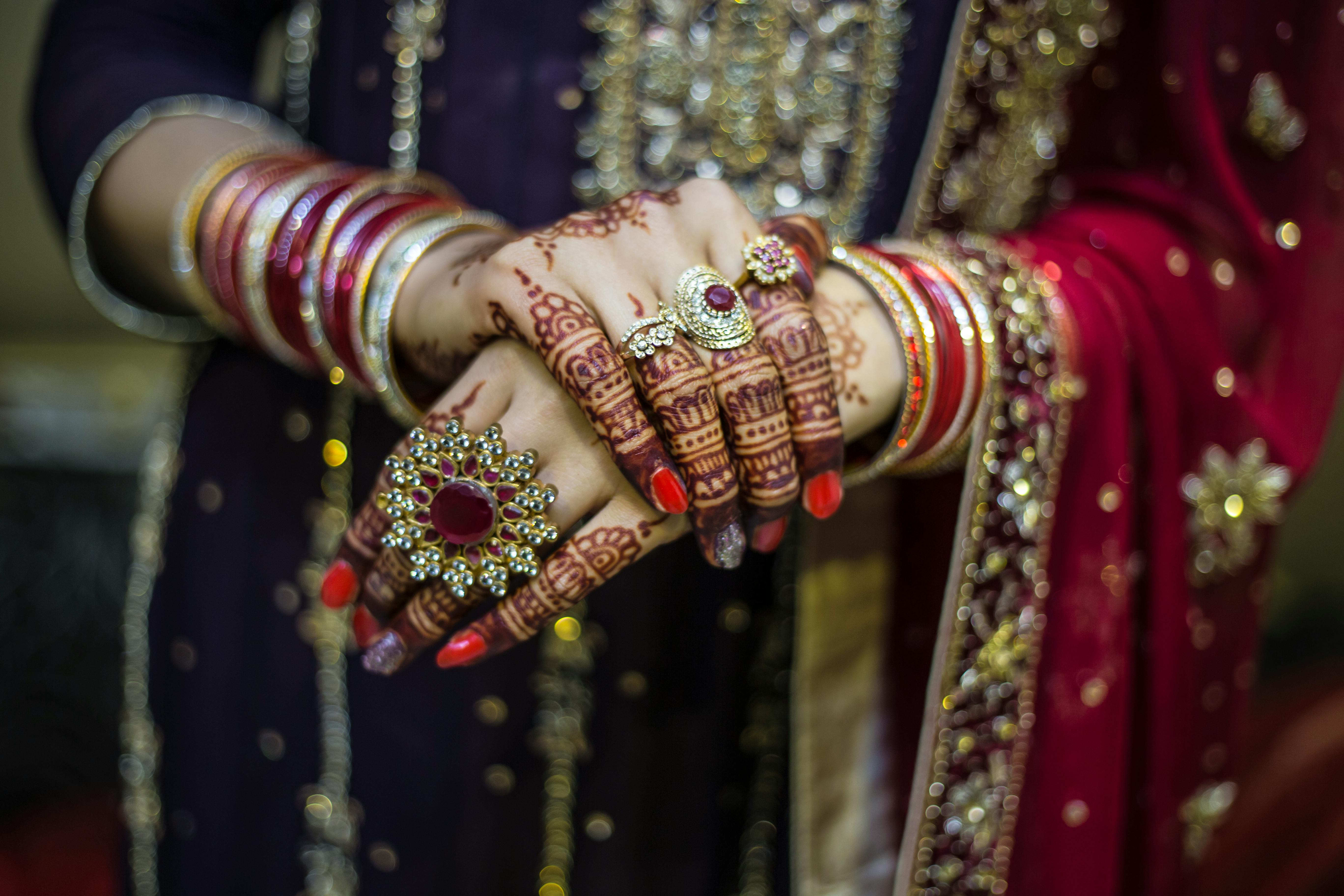Do Widows Wear Wedding Rings

Wearing a wedding ring is a symbol of love and commitment for many married couples. But what about when the spouse passes away? Do widows wear wedding rings? This is an important question for anyone who has gone through the loss of a loved one and wants to remember them in a meaningful way. In this article, we will look at the tradition of widows wearing wedding rings, as well as how each person can decide what is right for them.Yes, widows do wear wedding rings. This is a personal choice and a way for them to honor their deceased spouse or partner. Some widows choose to continue wearing the ring as a symbol of their love, while others opt to remove it and keep it as a cherished memento.
Widows and Wedding Rings
Wedding rings are a common tradition among many cultures, and for married couples, they usually serve as a symbol of their commitment to one another. But what about when a spouse dies? What happens to their wedding ring? Traditionally, widows and widowers have had different customs when it comes to wearing wedding rings after the death of their partner.
In some cultures, widows are encouraged to keep wearing their wedding ring as a sign of respect for their late partner. However, in others, the widow is expected to stop wearing the ring as a sign of letting go and moving on with life without the deceased spouse. Some may opt to keep the ring tucked away in a safe place or even pass it down to other family members.
For widowers, there is less emphasis on whether or not they should continue wearing their wedding rings after their partner has died. In fact, many men choose not to wear them at all as it can be seen as an outward sign of grief or mourning. Others may opt to wear the ring in memory of their late spouse but move it from its traditional place on the left hand over to the right hand.
Regardless of whether or not a widow or widower chooses to keep wearing his or her wedding ring after losing a spouse, these decisions are largely personal ones that should be respected by friends and family members alike.
What Are The Traditions?
The traditions surrounding wedding rings and how they are worn after loss vary greatly depending on culture and religion. In some religions, such as Judaism, it is common for both men and women who have lost a spouse not to wear any type of jewelry at all out of respect for the deceased person. Other religions may encourage both widows and widowers to continue wearing their wedding rings or even switch them from one hand to another as an outward sign of mourning.
In some cultures where arranged marriages occur regularly, it is also common for widows and widowers not to remove their wedding rings but instead keep them on until they remarry – if ever – because these marriages were often seen more as arrangements than actual love unions. In other cases where couples married out of love, continuing to wear the wedding ring can be seen as more symbolic than anything else – although this too varies greatly between individuals and cultures.
The decision whether or not someone wishes to continue wearing his or her wedding ring following the death of a spouse is ultimately theirs alone; however there are certain customs that are widely accepted throughout many cultures that can provide guidance when making this decision. Ultimately though it is up to each individual person – man or woman –to decide what feels right for them in terms of honoring their late partner’s memory while also allowing themselves time for healing and growth during this difficult period in life.
The Meaning Behind Widow’s Wearing Wedding Rings
Widows wearing wedding rings is a long-standing tradition that has been passed down through generations of families. It is a way for the widow to publicly display her commitment to her late husband and to honor his memory. Many widows wear their wedding rings as a symbol of their enduring love and devotion to the deceased, even after death.
The tradition of widows wearing wedding rings began in the Victorian era when it was not socially acceptable for women to remarry after being widowed. By wearing her wedding ring, she was able to express her commitment to her late husband and show that she had no intentions of remarrying.
Today, the tradition of wearing a wedding ring after being widowed is still seen as a sign of respect and remembrance for the departed loved one. The widow may choose to wear her ring on her right hand or left hand depending on personal preference or local culture. Some women may opt to wear the ring on both hands as a tribute to the spouse they have lost.
For many widows, wearing their wedding ring provides comfort during a difficult time and serves as reminder that their beloved partner will never be forgotten. It is also seen as an outward sign of mourning, which helps other people understand that they are in mourning and should be treated with respect and kindness during this difficult period in their life.
The tradition of wearing a wedding ring after being widowed is still practiced today by many people around the world who wish to honor their loved one’s memory and demonstrate their continuing commitment even after death.
Should a Widow Wear Her Late Husband’s Ring?
Wearing a ring to remember and honor a lost loved one is a common practice. For many widows, wearing their late husband’s ring can be an emotionally meaningful way to keep their spouse close to them. It is important to note that there is no right or wrong answer when it comes to wearing a widow’s ring. Ultimately, the decision is up to the individual and should be based on what feels right for them.
There are several considerations when deciding whether or not to wear a widow’s ring. First, it is important to consider the sentiment of the late husband and his family. If he expressed that he wanted his wife to wear his ring after he passed away, then this should be taken into account. Additionally, if his family members are supportive of this idea then it could be beneficial in providing closure and comfort during this difficult time.
It is also important for the widow to consider her own feelings on the matter. Some widows may feel that wearing their late husband’s ring helps them keep their memories alive while others may feel uncomfortable with the idea of wearing a physical reminder of their spouse’s death. Whatever the individual feels comfortable doing should be respected without judgement from others.
Ultimately, deciding whether or not to wear a widow’s ring is an intensely personal decision that should be made by considering all factors involved. If wearing the late husband’s ring brings peace and comfort then it can certainly have value in honoring him and keeping his memory alive.
What Is the Etiquette for a Widow’s Wedding Ring?
For a widow, the decision to wear her wedding ring is personal and deeply emotional. It is an outward symbol of the love and commitment that once existed between her and her late spouse. While there are no hard and fast rules when it comes to wearing a wedding ring after the death of a spouse, there are some considerations to make when it comes to etiquette.
First, it is important to consider what wearing the ring means to you. Some widows find comfort in wearing their late husband’s or wife’s wedding ring as a way of keeping their memory alive, while others may find it too painful to bear. If you do choose to wear your late spouse’s wedding ring, make sure that you do so in a respectful manner. This could mean taking off the ring when attending social events, or removing it from your finger when engaging in physical activities such as sports or gardening.
If you don’t want to wear your late spouse’s wedding ring but would still like to honour their memory, there are many other ways of doing so such as displaying it in a prominent place at home or wearing jewellery with special meaning such as a locket with their photo inside. You may also choose to have your late partner’s initials inscribed on another piece of jewellery such as an anklet or necklace.
Finally, consider how other people may perceive your decision on whether or not to wear your late spouse’s wedding ring. Some people may interpret not wearing the ring as disrespect towards your deceased spouse, while others may view wearing the ring as an act of courage and strength. Ultimately, you must decide what is right for you and take into account how comfortable you feel with whatever decision you make.

Widows and Remarriage: A New Ring or the Old One?
For centuries, many cultures have emphasized the importance of marriage and its role in society. Widowed individuals, however, have often been faced with difficult decisions about whether or not to remarry. In some cases, traditional beliefs may have discouraged widows from remarrying, while in other instances, widows may have been encouraged to seek a new partner after their spouse’s death. Today, as attitudes toward marriage and divorce continue to evolve, so too do the opinions of widows regarding remarriage.
Remarriage for widows is now becoming increasingly common in many countries around the world. Women who have lost their husbands may find comfort in a new relationship and enjoy the companionship that comes with marriage. Some may also find financial stability through a new union if they are unable to support themselves on their own. Additionally, having a partner can make it easier for widows to deal with the pain of loss as they can lean on someone else for emotional support during difficult times.
However, there are still those who believe that remarriage should not be encouraged among widows. These individuals may argue that it is disrespectful to the memory of their deceased spouse and could lead to feelings of guilt or betrayal if they choose to move on with their lives. Moreover, there is also the concern that a widow could find herself in an abusive relationship if she chooses to remarry without taking sufficient time for self-reflection and healing first.
Ultimately, whether or not a widow decides to remarry is ultimately her decision alone and should be respected by all parties involved. It is important that everyone involved recognize that each individual’s circumstances are unique and should be taken into account when making such an important decision. With proper support from family and friends, a widow can make an informed decision about her future which she will feel comfortable with regardless of whether she chooses to take on a new ring or stay single forever.
The Significance of a Widow’s Wedding Ring in Different Cultures
In much of the Western world, it is traditional for a widow to wear her wedding ring after the death of her husband. This symbolizes her commitment to the relationship and serves as a reminder that she will always love and remember her late spouse. In many other cultures, however, a widow’s wedding ring has different meanings and traditions.
In some cultures, widows are expected to remove their wedding rings in order to signify their mourning period. This can vary from culture to culture, with some requiring a widow to remove her rings for an extended period of time while others may only require that she take them off for a day or two. The amount of time required can also depend on how close the woman was to her husband when he passed away.
In other cultures, widows are expected to keep wearing their wedding rings after their husbands have died. This symbolizes their commitment to their marriage and is seen as a way of honoring the memory of their late spouses. In some cases, widows might even choose to wear multiple rings on the same hand in order to show additional respect for those they have lost.
It is important to note that these traditions can vary greatly from culture to culture and even from family to family within those cultures. There is no one-size-fits-all approach when it comes to what is expected of widows when it comes to wearing their wedding rings after the death of their husbands. Ultimately, it is up to each individual woman (and often her family) as to how she chooses to honor her late spouse with her wedding ring.
Is It Appropriate for Widows to Wear Both Gold and Silver Rings Together?
Widows often face societal scrutiny regarding their choices, including jewelry. Mixing gold and silver rings can symbolize a blend of memories and new beginnings. Embracing this combination allows for personal expression, reflecting both past love and a hopeful future. Ultimately, wearing what feels right is what matters most.
The History of Widows Wearing Wedding Rings
The practice of widows wearing their wedding rings dates back centuries, and has a variety of cultural and religious connotations. In the 19th century, it was common for widows to wear their wedding rings as a symbol of mourning. This was particularly true for those who had lost their husbands at war, where the ring served as a reminder of their love and devotion even after death.
In many cultures, it is also believed that the widow’s wedding ring serves as protection from evil spirits or bad luck. Some Native American tribes believed that the ring served to protect the widow from harm and to keep her husband’s spirit close by her side. In some religions, such as Hinduism and Judaism, a widow wearing her wedding ring is seen as a sign of respect for her late husband.
Today, many widows choose to continue wearing their wedding rings out of respect for their late spouses. While some may wear them only on special occasions or when attending funerals or memorial services, others may choose to wear them every day as a reminder of their loved one’s presence in their lives.
For some widows, wearing their wedding rings serves as an outward sign of strength and resilience in the face of immense grief and loss. It can be a way to honor their late spouse while showing others that they are still capable of living life with joy and optimism despite what has been taken away from them.
No matter why a widow chooses to wear her wedding ring, it is ultimately up to her own personal decision. Some may feel comforted by having something tangible that symbolizes the love they shared with their spouse while others may find it too painful or uncomfortable to do so. At the end of the day, each individual has different needs when it comes to honoring those they have lost; honoring those we love can come in many forms.

Conclusion
Ultimately, whether or not a widow wears a wedding ring is a personal decision. Some widows may choose to wear their rings as a symbol of love and remembrance for their spouse, while others may choose to take it off in order to move on with their lives. Ultimately, the decision is entirely up to the individual, and each person should make the decision that feels right for them.
No matter what choice is made, it is important to remember that there is no right or wrong answer when it comes to how a widow chooses to honor their spouse’s memory. It can be difficult after losing someone you love, but ultimately what matters most is finding peace and comfort in whatever way works best for you.
